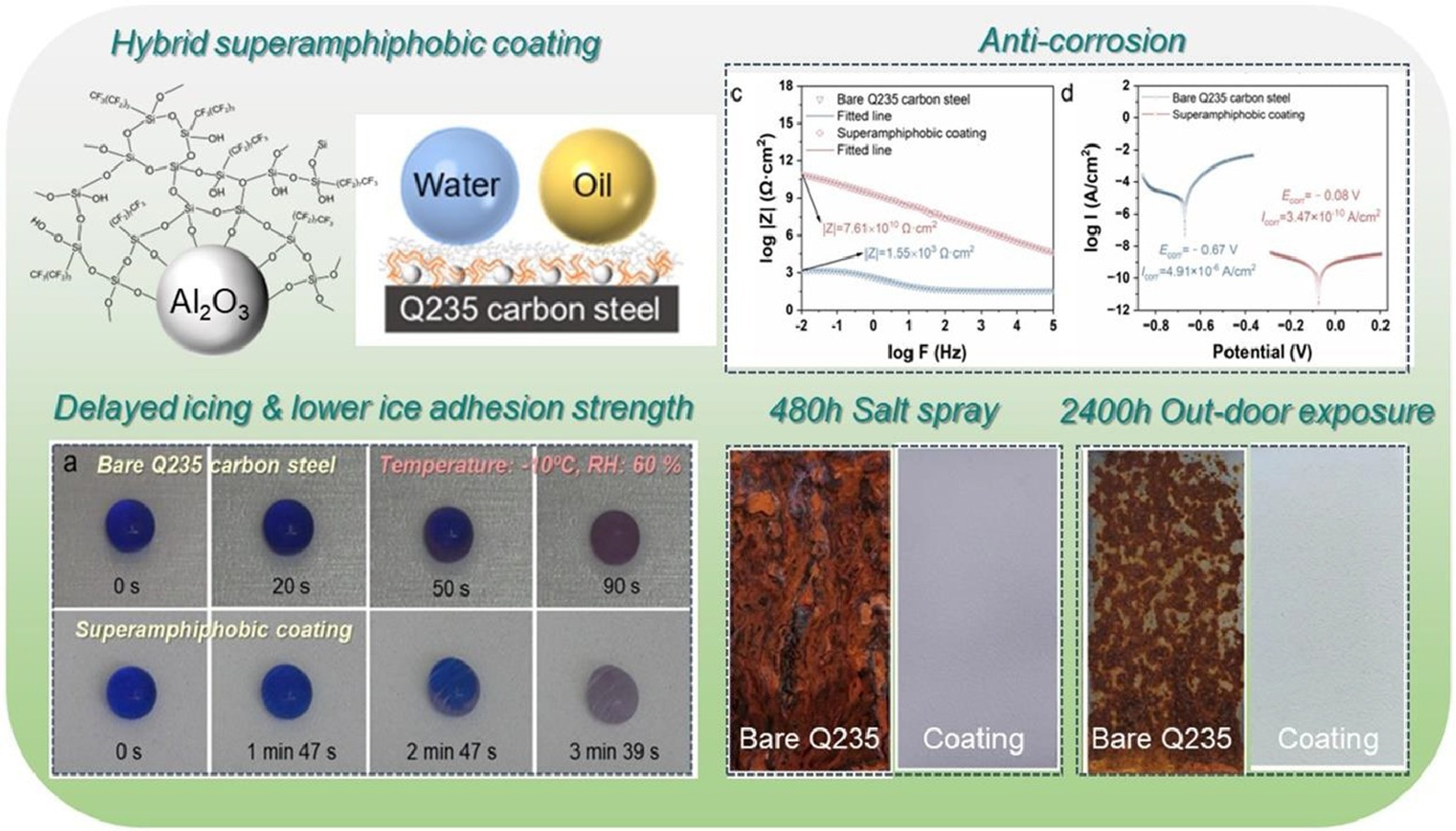Engineers and researchers have always been keen to find solutions to the issue of metal materials failing due to corrosion.
 The superamphiphobic, corrosion resistance, delayed icing, and long-term real-world anti-corrosion performance.Image Credit: Binbin Zhang
The superamphiphobic, corrosion resistance, delayed icing, and long-term real-world anti-corrosion performance.Image Credit: Binbin Zhang
Biomimetic superhydrophobic materials, inspired by the lotus effect, exhibit significant promise in corrosion protection due to their typical non-wetting properties at the interface. Superhydrophobic materials have been shown to have an anti-corrosion function by both domestic and international researchers, but there are still a lot of unanswered questions regarding how to get these materials from the lab to real-world applications.
The Chinese Academy of Sciences’ Institute of Oceanology's Prof. Binbin Zhang led a research team that discovered an organic–inorganic hybrid super-amphiphobic coating with integrated liquid repellency, self-cleaning, anti-corrosion, and anti-icing properties.
The study was published on December 14th, 2023, in the Journal of Materials Science & Technology.
The coating reportedly has outstanding repellency to low surface tension liquids like water, glycerol, ethylene glycol, and peanut oil, with sliding angles all less than 7°. It also demonstrates both superhydrophobic and superoleophobic qualities.
Using electrochemical impedance spectroscopy, Tafel polarization, salt spray testing, and outdoor atmospheric exposure, respectively, the coatings' corrosion resistance was thoroughly assessed. The findings demonstrated the coating’s strong long-term anti-corrosion potential, with the charge transfer resistance and low-frequency modulus increasing by seven-eight orders of magnitude after 480 hours of neutral salt spray and 2,400 hours of atmospheric exposure.
The coatings showed their functional integration capabilities in self-cleaning, delayed icing, lossless liquid transport, and substrate applicability, in addition to their significantly improved corrosion resistance.
We firmly believe that the continuous improvement of functional integration and long-term stability will remain the focus of future research in this field.
Binbin Zhang, Professor and First and Corresponding Author, Chinese Academy of Sciences
This research was funded by the Shandong Provincial Natural Science Foundation and the Youth Innovation Promotion Association of CAS.
Journal Reference:
Zhang, B., et al. (2024) Hybrid superamphiphobic anti-corrosion coating with integrated functionalities of liquid repellency, self-cleaning, and anti-icing. Science Direct. doi.org/10.1016/j.jmst.2023.10.042